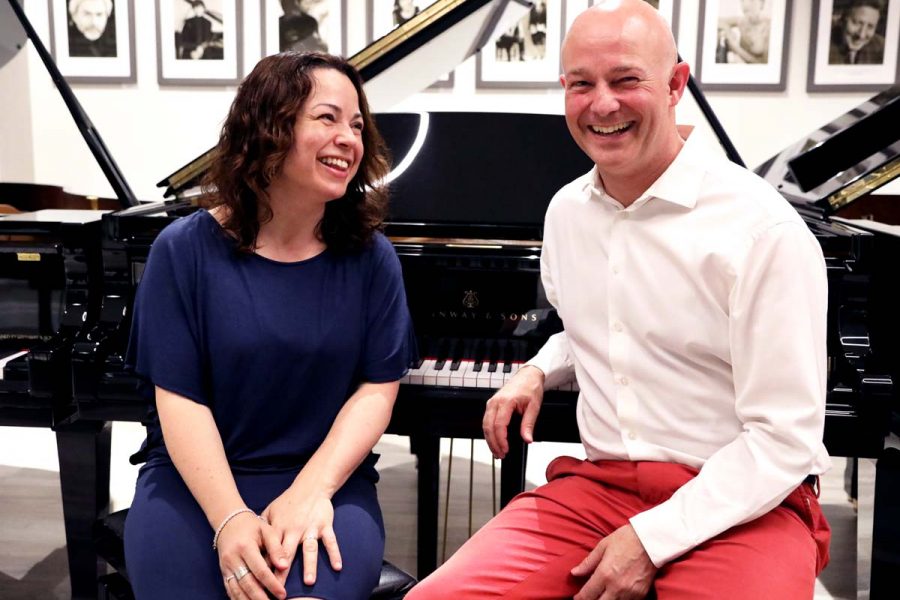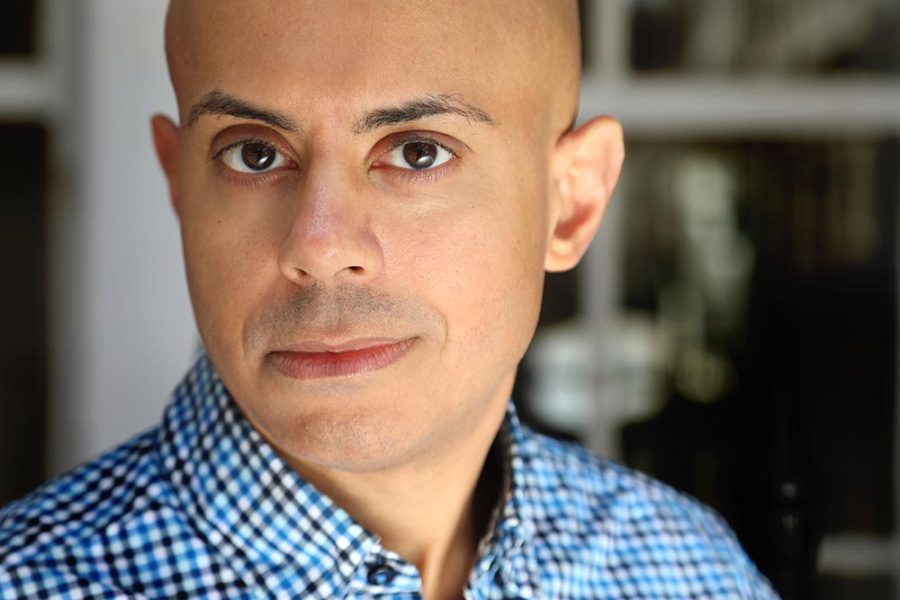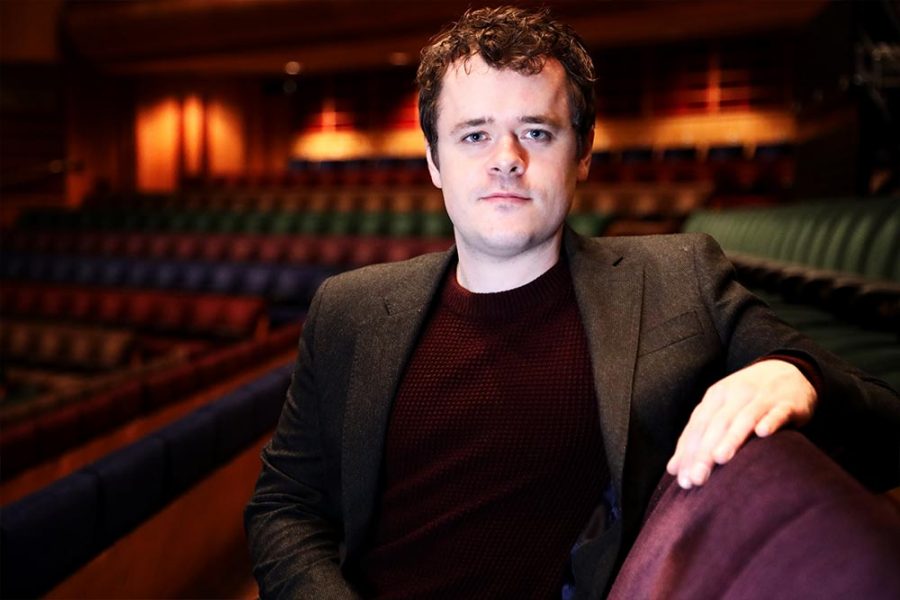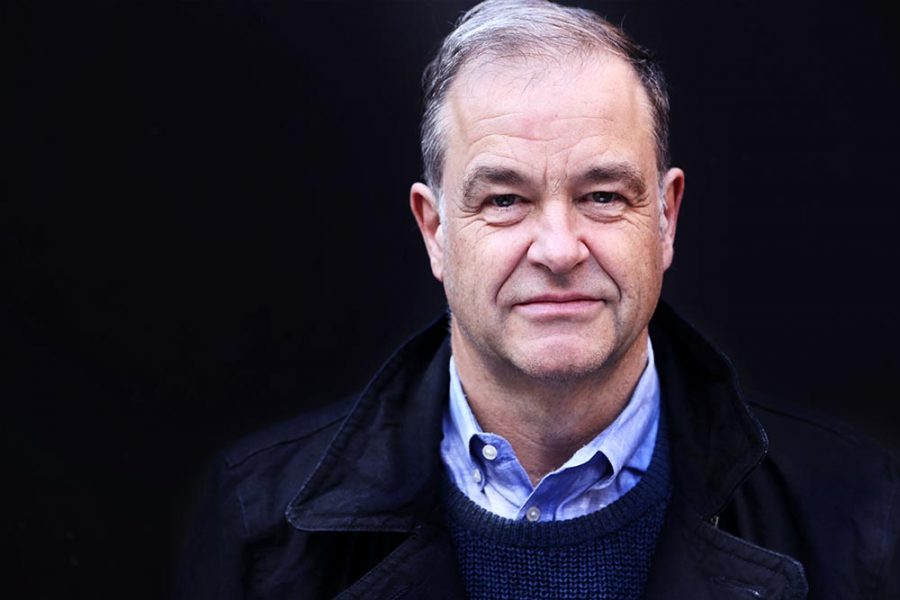Life is a Cabaret: Philip Mayers

December 2015
Words by
Emer Nestor
Photos by
Frances Marshall
Australian pianist Philip Mayers enjoys a versatile international music career as a soloist, Lied accompanist, chamber musician, vocal coach, conductor, composer, presenter and arranger. He is also highly respected as an interpreter and champion of New Music.
Currently based in Berlin, Mayers is the regular duo-partner of the British singer Mary Carewe and together they released a disc of serious cabaret songs on the ASV label, Tell Me the Truth About Love. He has appeared at major festivals such as Montreux, Aldeburgh, Wratislavia Cantans (Poland), the London Proms Late Night series, Schleswig-Holstein, La Roque d’Anthéron, La Chaise-Dieu, the Berliner Festspiele and the April Spring Festival in Pyongyang (North Korea) with his chamber ensemble, Blue Noise. As a recording artist, Mayers has performed on numerous prize-winning discs with RIAS-Kammerchor and Cappella Amsterdam for harmonia mundi, and with the Rundfunkchor Berlin for Coviello Classics. The accomplished musician has also donned the role of Musical Director with companies such as the Berliner Kammeroper, Opernfestival Schloss Rheinsberg, the Berlin Konzerthaus, Maerzmusik (Berliner Festspiele) and the Schwetzingen festival. Mayers regularly coaches singers who are appearing at Bayreuth, Staatsoper Berlin, Cologne, Covent Garden, Paris Bastille, Bordeaux and numerous other leading houses.
Final Note chats to Mayers about his musical journey from Australia to Berlin, his thoughts on Contemporary Music in Germany, the world of Cabaret and his love of German Lieder.
My mother began having lessons herself when I was 5, and when I began showing a marked interest in her practising, it was decided I too would be given the chance to have lessons."

Did you grow up in a musical home?
No, not especially: my father was a pineapple farmer and my mother a housewife. Neither of them were especially musically educated though they both enjoyed music. However, there was an upright piano in the house, which my parents had bought for my older sister. My mother began having lessons herself when I was 5, and when I began showing a marked interest in her practising, it was decided I too would be given the chance to have lessons. My mother also subscribed, among other things, to the Concert Hall Club, receiving two or three classical records a month which presumably were deemed — a little like commemorative plates or the never read Collected Works of Charles Dickens, both arriving in monthly installments — to be the sort of things “no home can be without” since I don’t recall them ever being listened to until I developed an interest in them myself a few years later. My parents were nonetheless supportive of my music while I was growing up, and recognizing an inevitability when they saw one, did very little to dissuade me from embarking upon it as a career.
What attracted you to the world of opera?
This too was part of my childhood. A sort of an interest in opera — not particularly informed, and certainly not indicative of a future involvement in that field — was sparked by a radio show called ‘Voices of Renown’ presented each Saturday afternoon by, I think, one John Cargill: famous arias sung by famous voices; and though at the time it didn’t eventuate a widening interest in the art form per se, much later it was the memories of these performances which formed the backbone of my auditory reference bank. Later however, if I am to be quite honest, my relationship with opera was grounded in practical necessity rather than being an ineluctable attraction: in order to be accepted into a postgraduate year at the Conservatorium, and not being thought worthy of the concert perfomer’s strand, I was obligated to do the répétiteur’s course at the Opera School, and from there it was an obvious step to my first gigs as a professional répétiteur.
Having received your undergraduate and postgraduate musical education in Australia, what motivated the move to Berlin and how has this impacted on your career?
The burning desire — shared by most young musicians in Australia — to be a part of a somewhat broader cultural world brought me, admittedly a little later than many, to the point where the move overseas was imperative. I won some scholarship and competition money, and even though my goal at that time was to live in Paris (I was then — as I am still — a rabid Francophile), went first to Berlin, attracted mostly, I am ashamed to say, by the promise of inexpensive lodgings, but then further persuaded in my choice by my studies with Phillip Moll, a great musician and pianist who instilled in me an enduring sense of discipline and judgment. And who got me my first gigs in Berlin. When I look back now on over twenty years of life in this incomparable city, and the great breadth of musical experience it has provided me, I am very happy that I was detracted from my original plan of living in Paris, feeling as I do much more rewarded — emotionally and professionally — for having stayed in Germany.
Having appeared in numerous prestigious music festivals, what do you enjoy most about the festival experience?
The best thing about being part of a festival is the excitement which comes from the concentration of productivity at a single place and time, and the feeling that it is a distilled experience. And these days, where the programming structure of festivals is often stringently thematic, there is a certain joy — for me, at least — in discovering unknown repertoire and in understanding cross-references and connections made by better dramaturgical minds than my own.
As a noted interpreter of German Lied, do you have any favourite works within the genre?
I do spend a lot of time with this art form, enough to realize that its repertoire is immense and that my knowledge of it is anything but encyclopaedic. So finding and falling in love with new objects of desire, and the broadening of one’s horizons that this entails is not only inevitable but also a practical necessity; this does not mean that the old loves have been relinquished or replaced — there is just always room for one more favourite song. Recently I have become enthusiastic about the Lieder of Othmar Schoeck and wonder why he isn’t more popular with recitalists. At the same time my love not only for Brahms (I am convinced he never wrote a bad song) but also Wolf, who rewards so richly the performer from whom he has demanded so much, never lessens.

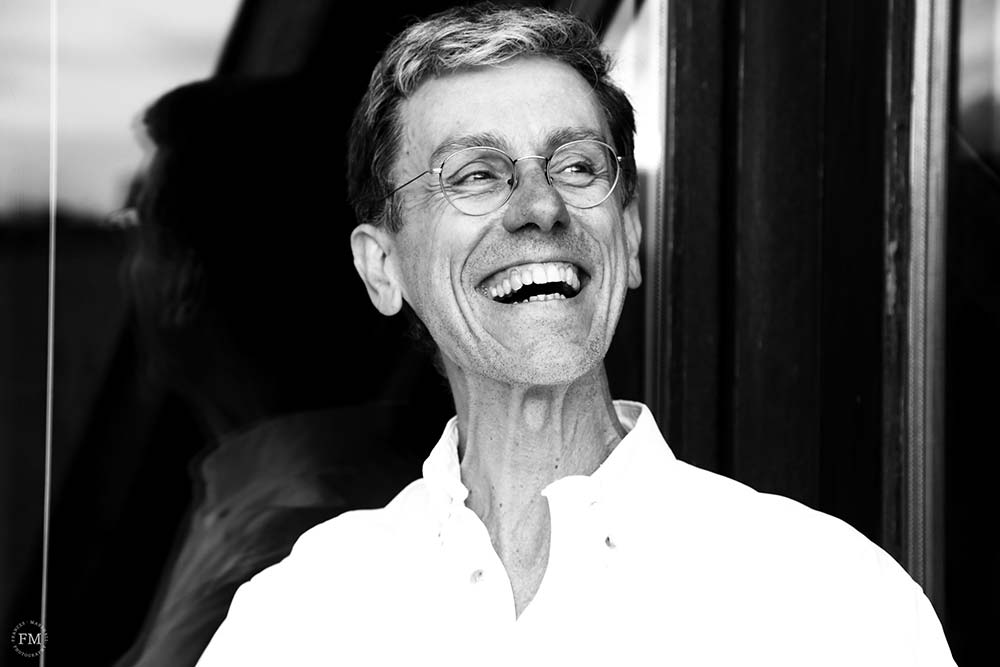


I find myself in the last few years playing less and less contemporary music, possibly because of my decreasing interest in it..."

You are well respected as a champion of New Music – what are your thoughts on the contemporary classical scene in Germany?
I find myself in the last few years playing less and less contemporary music, possibly because of my decreasing interest in it, but also because of my increasing frustration with the technical exigencies of preparing it adequately. There are many times when it seems the analytical demands of preparing a score (doing the maths, sorting out what goes where) are not proportionate to its musical demands — I frequently find with many composers a disheartening disattachment to the physical needs of the performer and the aural needs of the listener. There is of course in Germany thankfully a wide range — and an awe-inspiring abundance — of New Music being commissioned, composed and performed, but still it tends to be associated, to a great extent, with certain musical/political alliances. Being no longer so much a part of this world, I find the partisanry limiting — although it does seem that the power of dogma (as perpetuated for years now through Darmstadt and Donaueschingen) is slowly receding and that a new heterogeneity is making itself manifest.
Tell us about your musical partnership with Mary Carewe and your mutual love of Cabaret.
Mary and I have been good friends and musical collaborators for what seems like a lifetime, and what seems to hold us together — apart from a marked inability to rehearse for more than 15 minutes without taking a tea-break — is a great love for songs whose texts explore a vastness of human experience expressed with an economy of means. Our repertoire is very inclusive: show-tunes, jazz standards, cabaret songs from the decadent years of the Weimar Republic, art songs by Barber, Ives, Poulenc, Rorem and many others, the occasional pop number, demanding works by Thomas Adès, Carl Vine or Stefan Wolpe, and currently, for a programme in Madrid in May, various settings of Brecht, not only by Weill and Eisler, but also by contemporary composers writing in a wide variety of styles.
I really admire Mary for her ability to respond honestly to the demands of each new song, whatever its provenance, bringing to it her performing experience and an original vocal personality. There aren’t many singers who can not only belt out an evening of James Bond showstoppers, but also take on the challenges of Schönberg’s Pierrot Lunaire — and live to tell the tale. Over the years I have thrown her a great many curve balls, and she has always risen to the occasion: mostly with bravura, and at the very least with good grace.
You conducted the world première of Lera Auerbach’s intriguing a cappella opera The Blind in 2011 – how did you become involved in the project?
The Blind was practically a co-operation between the Berliner Kammeroper and the extremely versatile project chorus, VocalConsort Berlin. Since I had worked for both groups and knew many of the singers quite well, it seemed a good idea to take over the musical direction for the opera. I also knew the director, Cornelia Heger, who had directed the premiere performances of my own chamber opera Trieste for the Kammeroper some years previously. The directors of VocalConsort handpick their cast for each project, according to the exigencies of the work in question; the only difficulty with The Blind was finding two basses who could sustain low c’s for pages on end: I think Ms Auerbach was greatly influenced in her choice of vocal colour by her memories of Russian choirs — the colour achieved by our two nonetheless able and very hard-working basses was never quite as sonorous as she had hoped!
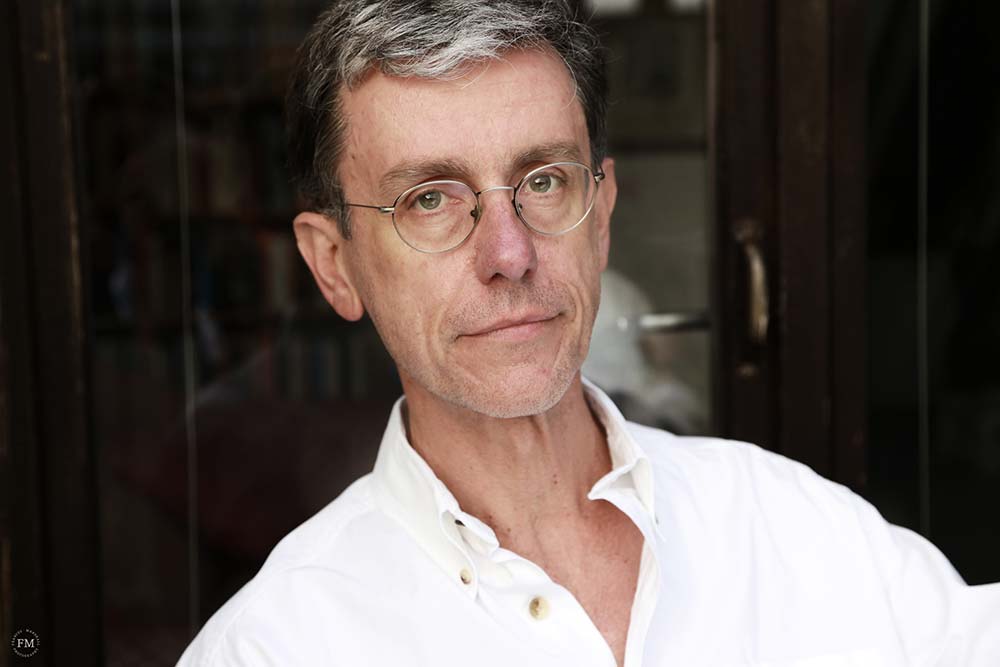


Collaboration is a fundamental part of your profession — have you had to deal with any particularly challenging musical relationships over the course of your career, and what elements are important in establishing an authentic performance for you?
It seems to me that all collaborations should be challenging, otherwise they are not worth undertaking. There is of course a sliding scale of “challenging” however, sometimes conflicting personalities make life more demanding than one would like, and every now and then, the problems associated with ill-preparedness or inflexibility are insurmountable. But only when you are intellectually and musically challenged — stimulated by fresh ideas and unexpected motivations — is your art truly alive and can enable the creation of an authentic performance. Authenticity is also achieved when the communication and understanding worked upon in a rehearsal situation bear expected but nonetheless surprising fruit, and where that communication ceases to be a technical aspect and becomes an emotive one, engaging the listener in the same processes which have accompanied the preparations until that point.
Tell us about your work ethic when it comes to composing and arranging music.
My work ethic? Do I have one? If you mean, do I work every morning after breakfast for two or three hours like Richard Strauss, well, no. In my case, a work ethic usually implies, since I am pathologically incapable of starting a project in plenty of time, staying up to the early hours completing the work the night before it is to be delivered.
Are you writing anything at the moment?
I am currently working on a song cycle for the Irish Tenor, Paul McNamara, to be premiered in Amsterdam in March. I have boldly (perhaps foolishly) chosen to set some texts by W.B.Yeats. I hope the Irish will forgive me for my impertinence.
What does the coming year hold for you?
The coming year is comfortably eventful. There will be quite a few outings with the Berlin Rundfunkchor in their staged version of Brahms’s Requiem — a phenomenally successful event which will be taken this year to New York and Hong Kong, as well as other European venues; two trips to Australia (if all goes according to plan), one for the first Australian performances of Mahler’s own piano version of Das Lied von der Erde, the other being once more a Guest Coach at the Lisa Gasteen National Opera School at the end of the year. Although what I am possibly most excited about — and where I am the least ashamed at beating my own drum! — is the upcoming release of my recording of Gershwin songs (on the label Coviello Classics), in arrangements for string orchestra and occasional piano, sung, of course, by Mary Carewe. This project been some years in the making, and it is with a sense of relief as much as anything else that I look forward to its completion.
All images displayed in this article are subject to copyright.
Share this article


